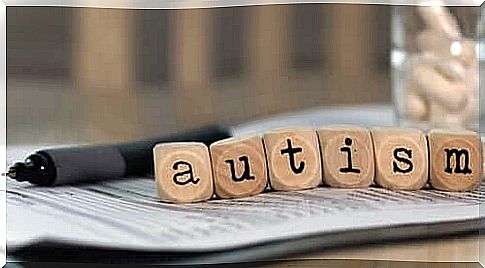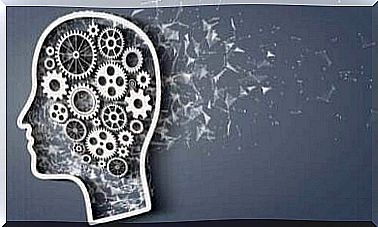Adults With Autism: Mental And Social Challenges

When people talk about autism spectrum disorders (ASD), it is very common for them to think about the challenges and needs of children who suffer from it. We know that early detection improves their development and quality of life. But what about adults with autism? What support and strategies does an adult man or woman with this developmental disorder need?
Some scientists improved the diagnostic criteria in the 90s, but it is only possible to identify children with ASD at school. Many adults have also been able to find explanations for their behavior. Finally, they found an explanation for their peculiarities and the origin of their personal limitations. One thing is clear: it is a disorder with a wide range of features and needs.
Some people have Right Syndrome, others have Aspergers. Adults with autism can be highly functional. They may also exhibit high dependence and severe communication limitations, problems with social interaction, and repetitive behaviors. Whatever the symptoms are, you need to understand something. Psychological awareness, social assistance and the right to inclusion are all fundamental to their care. Adults with this disorder are a reality that should be visible to guarantee the answers they may need. Only in this way will they be able to achieve the level of well-being that all people deserve.
Statistics show that almost 1% of the population has some form of autism. Early detection and adequate psychological support can also improve the future of this large sample of the population.

Adults with Autism: What Are Their Needs?
It is important to know that adults with autism have not been well understood or studied. In fact, they have been neglected. Fortunately, researchers have shown more interest in this area in recent years. Now the scientific community has more statistics, more resources and more knowledge.
This all leads to one main goal: to give individualized attention from experts to each person according to their own needs. However, there is a problem with clinical practice. Many adults who are very well-functioning do not know that they have this disorder.
These are independent people with work commitments and large projects that make it sometimes feel as if something in them is wrong. Problems with social interaction, hypersensitivity to stimulation and anxiety really tend to limit their quality of life to a great extent. It is also important to know that no one with ASD has the same traits.
Yet autism in adults affects their daily lives, and that beyond each person’s uniqueness. Detection and early personal therapy can guarantee changes, improvements and greater well-being.
Let’s take a look at some special challenges and what kind of help they may require.
To consult psychology experts regarding ASD
If you have an adult family member with autism or suspect that you may have it, it is best to consult an expert in the field. What can a trained psychologist do for you?
- First of all, they will evaluate the patient to identify both the strengths and cognitive, behavioral and emotional needs of the adult with autism.
- A therapist can also conduct the interview with those who interact with the patient in everyday life.
- They will perform tests to rule out other diseases.

Adults with autism and types of therapy
Psychological objections in adults with autism will always depend on their specific needs. Therapists usually help patients work on these aspects:
- First: to practice communication training and social skills.
- Treatment helps them develop good living habits.
- Psychologists help them modify certain behaviors to help with group integration, well-being, and social behavior.
- Patients also practice functional routines so that adults with autism can have more security and independence.
- Patients can be helped to join the workforce.
- It is also essential that the psychologist helps with things like anxiety or mood disorders like depression. This type of disorder often means that patients have to deal with several different emotional changes. Cognitive-behavioral therapy is very useful in these cases.
- In the same way, individual psychotherapy is also important. A man or woman with ASD needs to improve their romantic, family or work-related relationship.
- Finally, some adults with autism have several serious cognitive problems. They may have behavioral problems that require psychological support.
Support from the family and the environment
Last but not least, discussions about adults with autism must include their family environment. Fathers, mothers, partners, children… Knowing how to behave or simply understanding the disorder is an important step in improving patients’ lives.
To conclude, psychologists represent important daily support. They can also help the patient get rid of fear, doubt, anxiety and stress. Basically, the personal reality of this vast array of our society is complex and unique. Fortunately, resources, strategies and experts can help us facilitate, little by little, a better quality of life.









